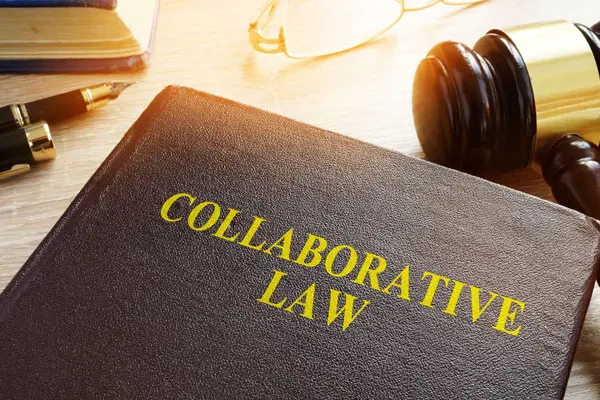Collaborative law is a relatively new process focused on problem solving rather than fighting to “win.” Collaborative law centers on resolving contested issues outside the courtroom, thereby avoiding costly litigation. It encourages open, transparent, mature, and cooperative behavior between parties. While Collaborative Law does not work in every case, when used in the right circumstances, it can achieve a quick, fair settlement for a fraction of what a contested case would cost.
The Collaborative Law Process
Each party still has his or her own lawyer and the job of that lawyer is to assist the client in settling the contested issues outside of court. The parties each agree that they will provide full, honest and open disclosure of all information relevant to the proceedings. And, very importantly, they agree that their attorney’s representation is limited to the collaborative divorce process, and that neither of the attorneys can ever represent them in a court proceeding against the other spouse. This encourages both parties to remain committed to the process, even when dealing with the tougher issues, since this agreement eliminates the easy fallback position of letting a judge decide. Collaborative Law thereby creates an emphasis on finding workable solutions that are acceptable to both parties.

The process begins by each party signing a contractual agreement that will state that the parties agree to do the following:
Give honest complete and open information and documents relating to the issues.
Respect one another and avoid disparaging or criticizing each other.
Refrain from involving the children to minimize any negative effects.
Use outside experts where necessary and share the costs related to those experts. (i.e. real estate appraisers, business appraisers, parenting consultants, vocational evaluators, or accountants).
Try to come to an amicable solution to create a “win-win” for everyone.
Avoid seeking or threatening court action to resolve any dispute.
If the parties decide to go to court, the attorneys must withdraw and the process begins anew in the court system.
Who is Involved in Collaborative Law?
In addition to the attorneys representing each of the parties, it is typical in Collaborative Law to assemble a team of professionals, to help the parties understand and resolve their disputes in many different contexts. Every case is different, but some of the types of professionals that could be hired include:
Mental Health Counselors or coaches
Financial Advisors
Parenting Specialists
Appraisers
Child Specialists
Accountants
Vocational Experts
The Bottom Line on Collaborative Law: Most Cases Settle
More than 90% of all divorce cases are resolved without the need for a trial. The Collaborative Law process recognizes that emotional issues exist that cannot be adequately addressed by the court system. You may have heard stories of people spending thousands of dollars in legal fees to argue about visitation of pets or over furniture that has no sentimental or monetary value. These arguments are not really about the dog or furniture, but are reactions to the emotional distress these people are experiencing. The Collaborative Law process can address these problems using the team approach to find solutions. Collaborative Law may not work in every case, however, when used effectively, there is usually a much quicker settlement at a fraction of the normal cost associated with a contested divorce.
